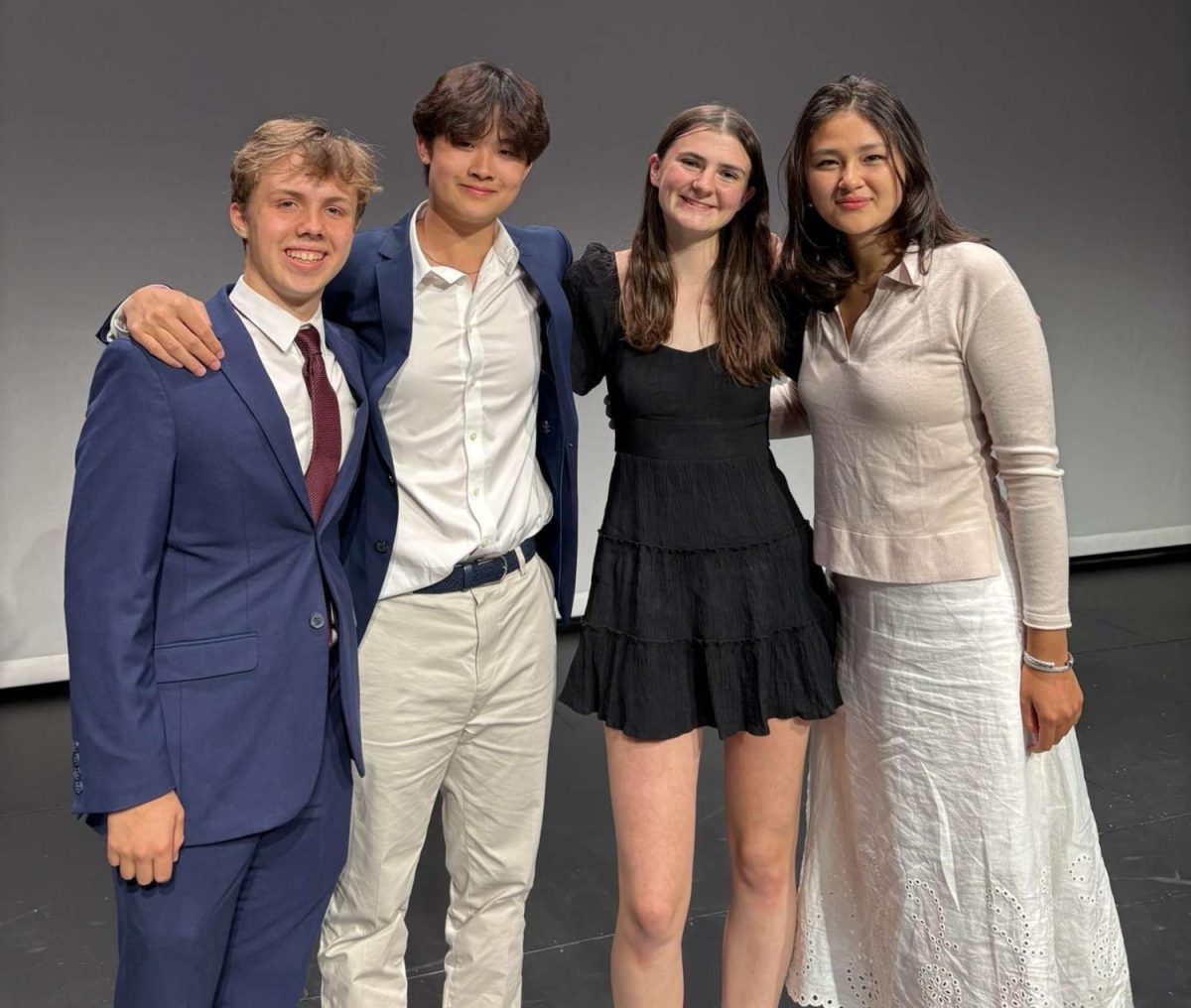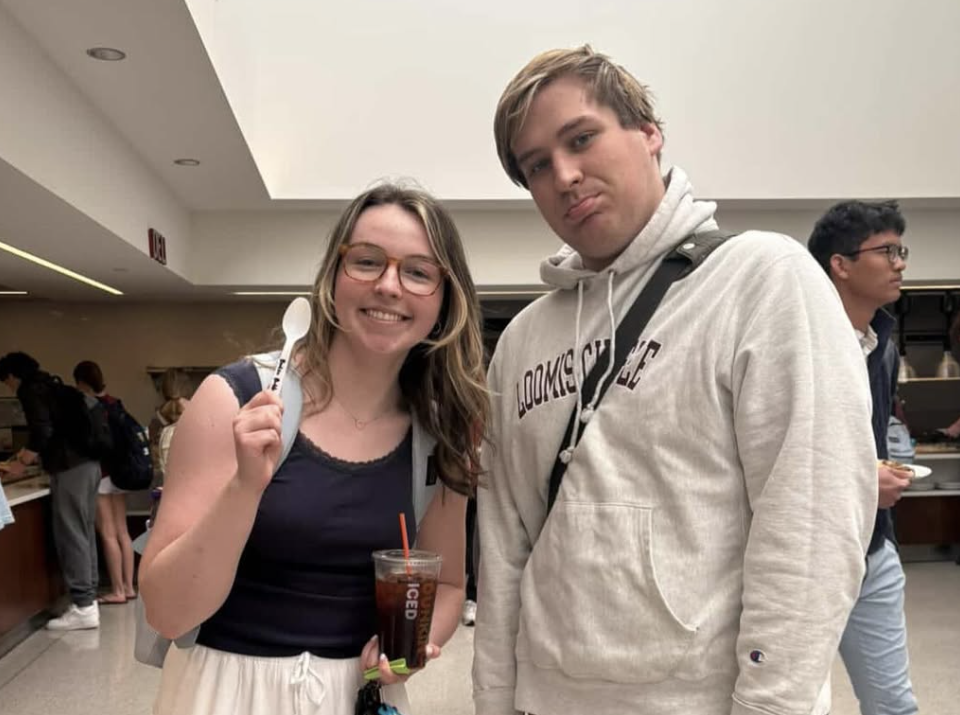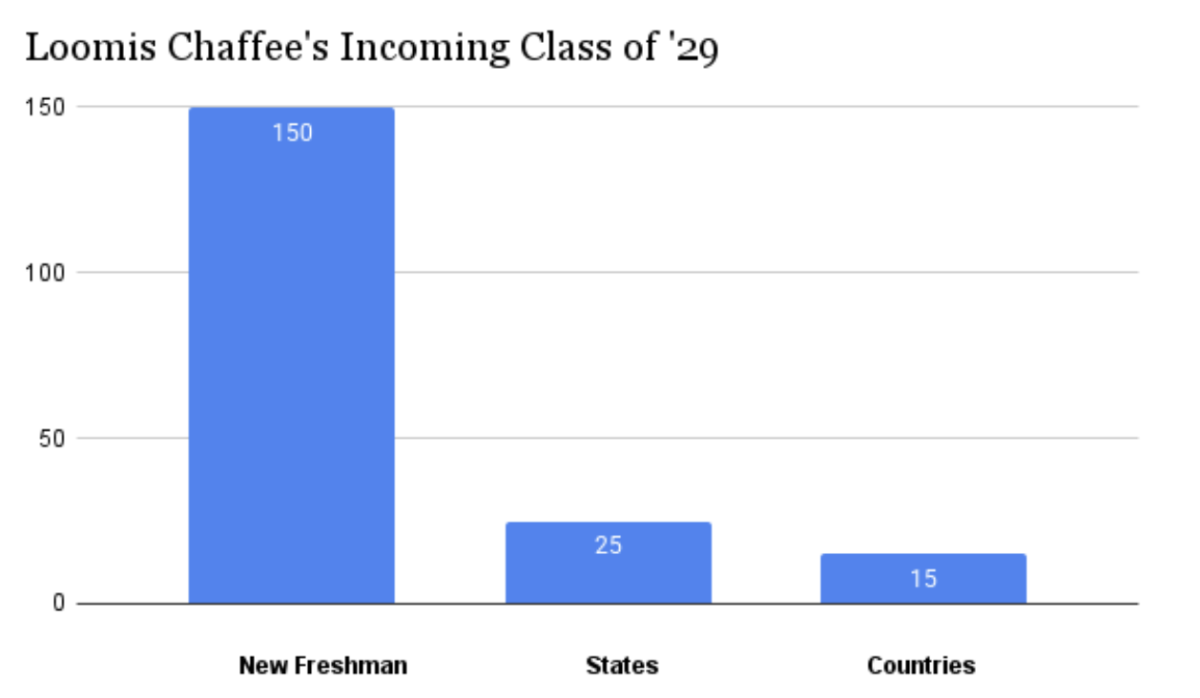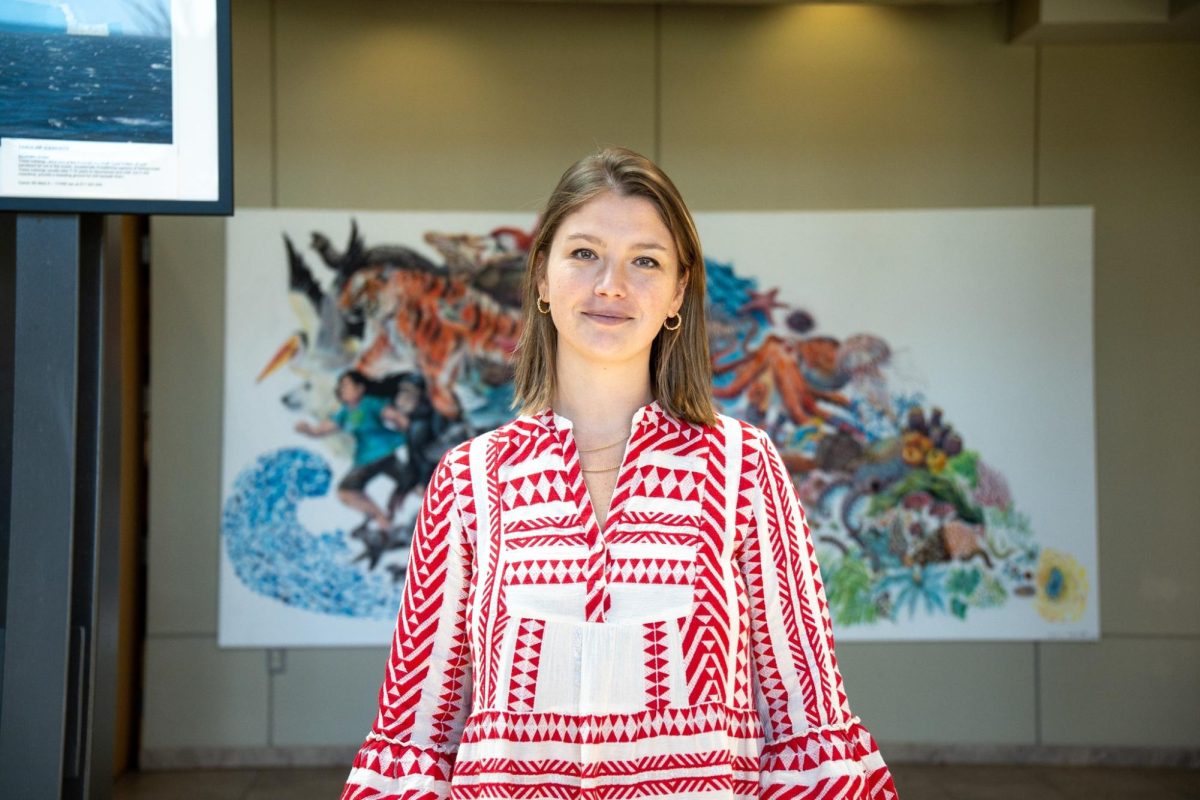On Tuesday, April 29, students enrolled in World History and CL European History, as well as members of the Jewish community on campus, gathered in the Hubbard Performance Hall for a thought-provoking lecture by Ruth Franklin, an award-winning biographer and literary critic. Her visit was sponsored by the Rubenstein Family Holocaust Education Fund and organized by student leaders Sophie Singer ‘26, Shane Lischin ‘26, Eli Krasnoff ‘25, Eli Somberg ‘26, and Klara Oppenheimer ‘28, continuing Loomis Chaffee’s commitment to deepening historical understanding and moral reflection on the Holocaust.
Franklin is best known for her biography A Rather Haunted Life, which won the National Book Critics Circle Award, and more recently, for her literary biography The Diary of Anne Frank: The Biography, which carefully reexamines Frank’s life, writing, and posthumous legacy. Her scholarship seeks to restore Anne Frank as a complex writer and adolescent girl—not simply a symbol of innocence or tragedy.
During her lecture, Franklin challenged students to reconsider how Anne Frank has been remembered. She noted the ways in which Frank’s Diary has often been politicized, sanitized, or used to serve agendas far removed from the historical and personal context in which it was written.
“Anne Frank’s diary is not just a universal story of hope,” Franklin told the audience. “It is a document grounded in a specific, terrifying historical moment. To remove it from that context risks distorting both her life and the truth of the Holocaust.”
That idea struck a chord with many in the audience. William Song ’28, a student currently taking World History, said, “It surprised me how Anne Frank’s story has been misused by people—politically or otherwise—and how that can have a negative impact on how we understand history today.” Song added that the lecture and his coursework had deepened his understanding of the Holocaust, especially its human dimension.
“I always knew about Anne Frank and that she was famous for her diary, but I never took time to read her words. Ruth Franklin and our class really encouraged me to see her not just as a symbol, but as a person,” said William.
Franklin’s talk arrived at a moment when students were already immersed in studying the Holocaust and 20th-century European history. Alex Hefflin ’27, a member of the Jewish community and a student currently enrolled in World History, said, “We’d been covering topics like fascism, the Nuremberg Laws, and the collapse of democracy, and Franklin’s talk put a human face on those ideas. Anne Frank’s life gave context to everything we’ve studied.”
More than just historical reflection, the event also prompted students to consider the ethical responsibilities of remembrance. “Studying the Holocaust reminds us what happens when hatred is normalized,” said Alex. “There’s so much misinformation and desensitization now that it’s more important than ever to hear these stories.”
William shared a similar sentiment. “I feel like the suffering the Jews endured during the Holocaust is still misunderstood by many teens today. Unless you grew up in a Jewish background, you might not truly grasp how devastating it was. Learning about it in class and through Franklin’s talk really opened my eyes.”
Franklin also explored the power of storytelling itself. She emphasized that Anne Frank’s voice endured not just because she wrote during the Holocaust, but because she wrote well. Her observations on daily life, interpersonal dynamics, and emotional confusion were preserved in a way that humanized the experience of hiding and fear. “The talk made me realize how powerful journaling is,” said William. “Without it, Anne Frank’s voice might’ve been lost. That stuck with me more than I expected.”
Ultimately, Franklin’s visit served as a call to thoughtful remembrance. By examining Anne Frank as both a teenager and a writer, and by warning against the dangers of misusing historical memory, Ruth Franklin invited Loomis students to consider and discuss how the past still speaks to the present and how our responsibility is not just to learn, but to remember with care.







